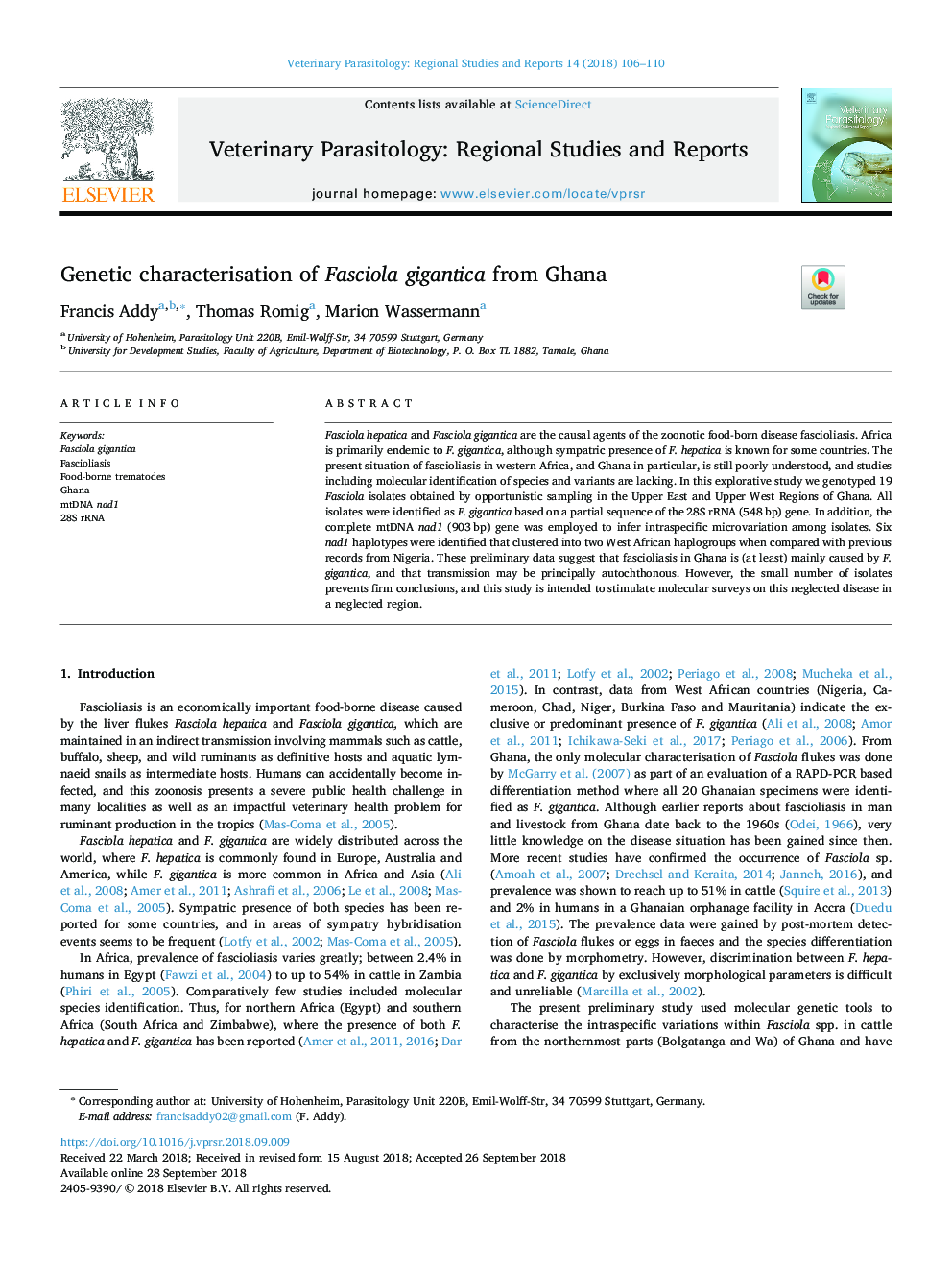| Article ID | Journal | Published Year | Pages | File Type |
|---|---|---|---|---|
| 11033971 | Veterinary Parasitology: Regional Studies and Reports | 2018 | 5 Pages |
Abstract
Fasciola hepatica and Fasciola gigantica are the causal agents of the zoonotic food-born disease fascioliasis. Africa is primarily endemic to F. gigantica, although sympatric presence of F. hepatica is known for some countries. The present situation of fascioliasis in western Africa, and Ghana in particular, is still poorly understood, and studies including molecular identification of species and variants are lacking. In this explorative study we genotyped 19 Fasciola isolates obtained by opportunistic sampling in the Upper East and Upper West Regions of Ghana. All isolates were identified as F. gigantica based on a partial sequence of the 28S rRNA (548â¯bp) gene. In addition, the complete mtDNA nad1 (903â¯bp) gene was employed to infer intraspecific microvariation among isolates. Six nad1 haplotypes were identified that clustered into two West African haplogroups when compared with previous records from Nigeria. These preliminary data suggest that fascioliasis in Ghana is (at least) mainly caused by F. gigantica, and that transmission may be principally autochthonous. However, the small number of isolates prevents firm conclusions, and this study is intended to stimulate molecular surveys on this neglected disease in a neglected region.
Related Topics
Health Sciences
Veterinary Science and Veterinary Medicine
Veterinary Science
Authors
Francis Addy, Thomas Romig, Marion Wassermann,
